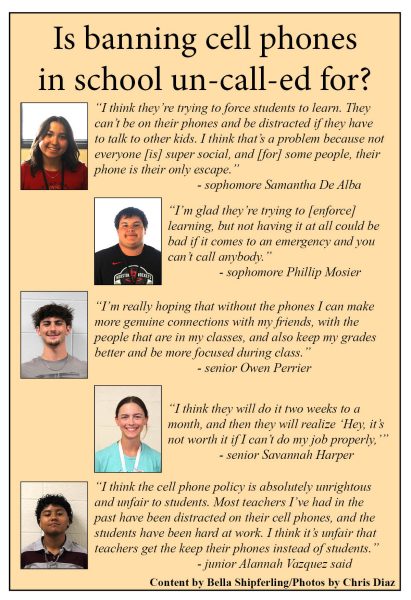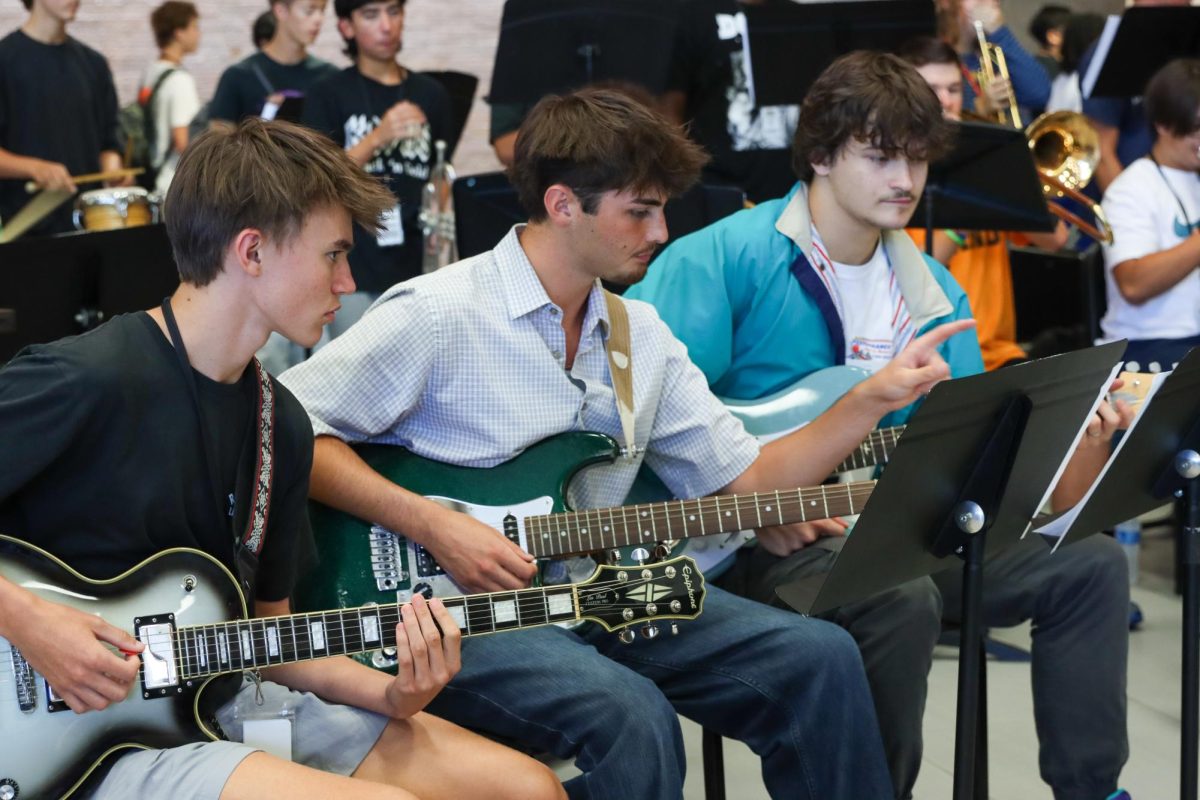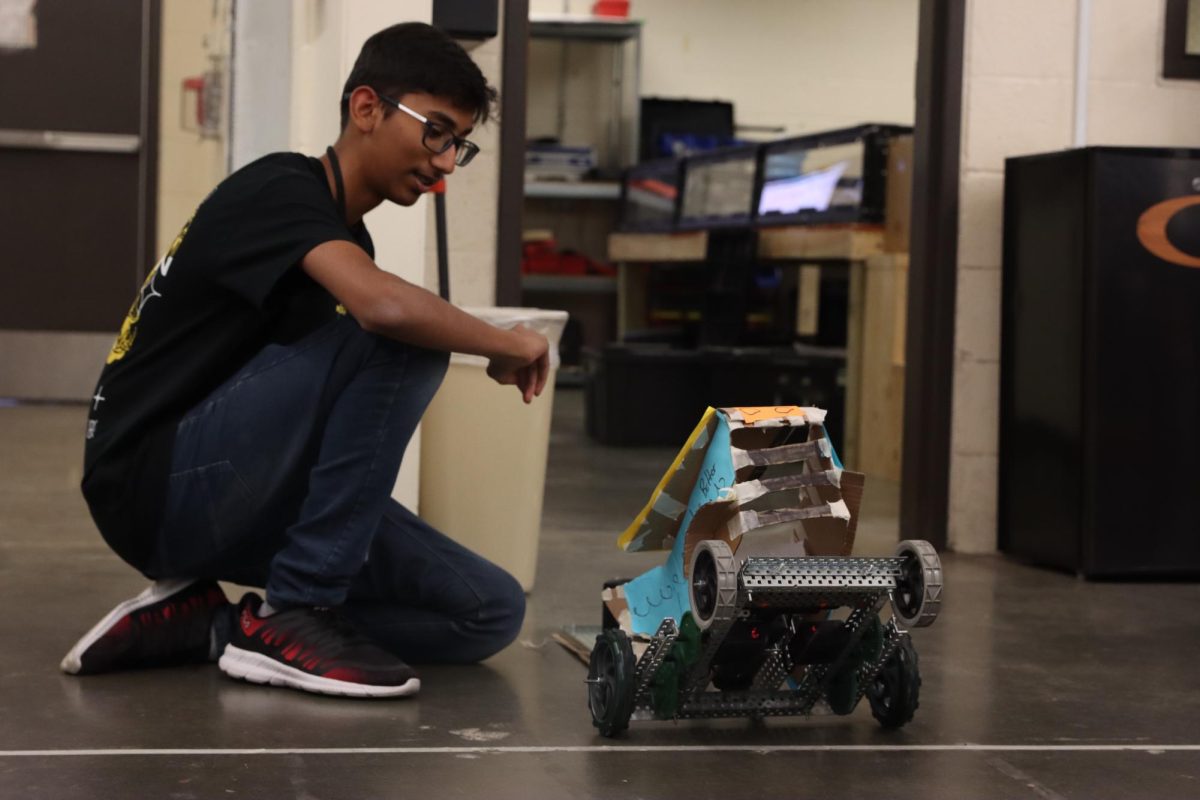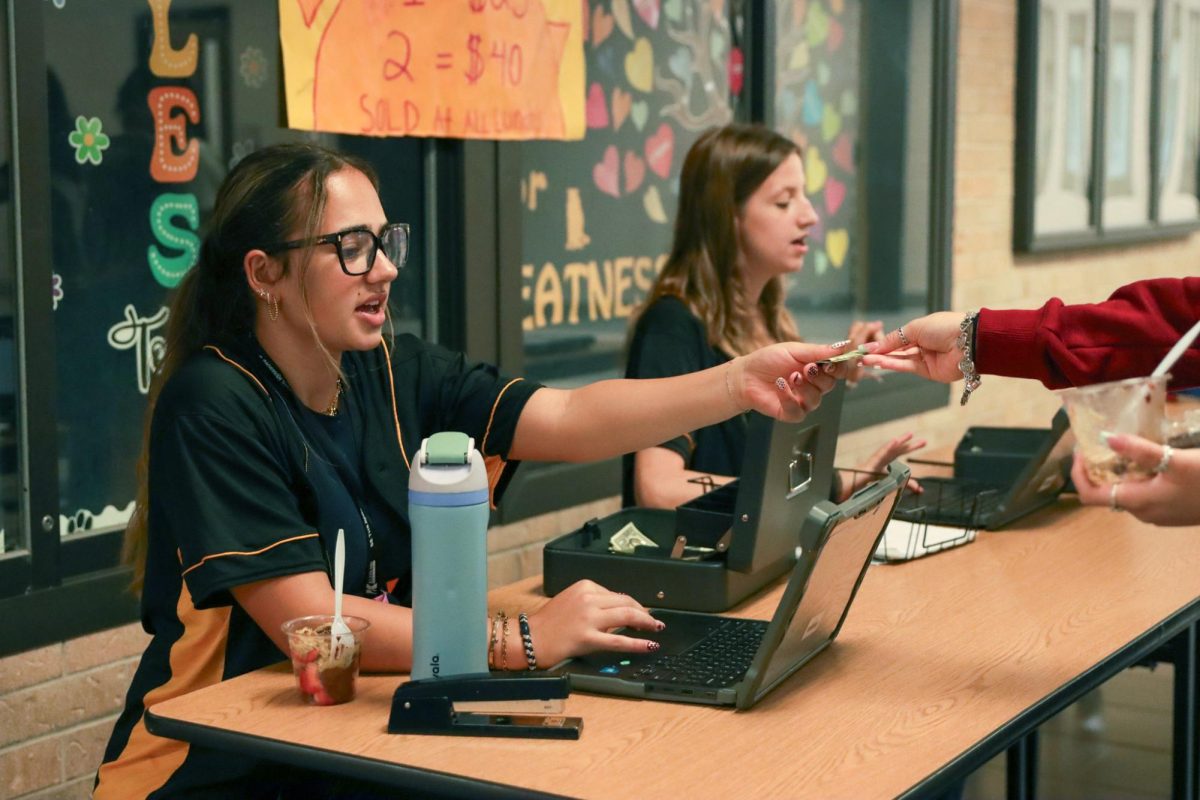With Texas enacting House Bill 1481 with the start of the school year, Klein ISD must enforce state law by banning personal communication devices such as phones, smart watches, and headphones, requiring they be turned off and out of sight during instructional hours.
Punishments include confiscation each time, administration and student conferences, parent pick up of items, and increasing degrees of detention, with the maximum being a two day ISS assignment.
“Your fifth offense would mean we could give you a long, extended stay in ISS or even an Annex placement,” principal Thomas Hensley said. ‘It wouldn’t be an automatic, ‘anybody that gets five [offenses] goes to Annex’, but it’d be the next step if [the offense] was really flagrant, blatant, or disrespectful.”
If offenses were to go past four in number, the umbrella which consequences are delivered then change.
“It would be a defiance issue at that point, where it was not just about the phone,” Hensley said. “I hope that we’ll never have to get to four. I didn’t become a teacher, then administrator, and ultimately a principal to be policing cell phones. I don’t want to give discipline ever. It’s part of it, but I don’t love it.”
Unlike tardy discipline that resets each week, the discipline for technology violations keeps adding up.
“With this, it’s not [like the tardy policy],” Hensley said. “Ultimately, it’s going to be through the end of the year.”
As with any legal document concerning students, KISD leadership has evaluated the bill’s contents and acted in the best interest of the district’s student population as whole while trying to eliminate any gray area.
“Our interpretation of the law is any personal communication device. In general, [headphones, personal computers, cell phones, mp3 players] wouldn’t be allowed under the policy. That’s a reflection of the law.”
The bill also presents gray area for senior Vincent Luong who is open to the idea of compromise.
 “Personally, I don’t think there is any benefit to completely banning it,” Luong said. “There’s really no benefit to taking away phones completely if we’re not doing any work or need our attention devoted to something.”
“Personally, I don’t think there is any benefit to completely banning it,” Luong said. “There’s really no benefit to taking away phones completely if we’re not doing any work or need our attention devoted to something.”
Opposed to compromise, some like sophomore David Temporal have concern for the social aspect.
“First of all, it makes lonely kids bored and forced to talk to other people; what if they don’t want to talk to other people,” Temporal said. “Also, we make memories with our phones, we capture things, and I just think it’s really powerful if we can use our phones to make memories.”
Some against the bill believe it to be misguided, prioritizing the wrong problems.
“I understand the reasoning behind it but it just doesn’t seem as big of a problem. There are so many other things they could focus on to actually help students with school,” sophomore Lily Campos said. “I would constantly use my phone to look at better resources or references for different classes last year and not be distracted. I understand that’s not how it is with a lot of students but the ban makes it really hard for the students who use their phones productively.”
Despite students being against the bill, several believe it is a step in the right direction to help kids make the most of their school day.
“I’m pro-bill because a lot of students get distracted while on their phones in class, and don’t learn as much, then complain that they don’t learn as much,” junior Emily Klein said. “I think [the bill] will impact them because the students will be able to learn better and actually pay attention, and be able to go to college, and fully understand what they’re doing in their future.”
With phones and other distractions out of the equation, students are further obliged to pay attention as a result of the bill.
“I am personally for the phone ban because due to the ban I am actively forced to do my work,” junior Chris Kuehn said. “My previous years have been hard because it’s so tempting to be on my phone, but now that it’s banned and punishments are severe, I’m seeing better results with turning in my assignments on time and overall having better grades.”
From students to staff, both sides point to positives in the classroom. According to cell phone pouch company Yondr, a 38% increase in probability of passing grades in academically focused classes was recorded, alongside a 74% agreement by teachers that students were more attentive and engaged in class after the implementation compared to before restrictions.
“I’m for it because states that previously passed it have seen improvements in student scores, participation, and attention,” social studies teacher and National Honor Society sponsor Alison Dawe said. “I think you still need to find ways for kids who can’t sit for long periods of time to be engaged, but they are also finding engagement between students is increasing, and I’m okay with that.”
Between faculty members, the bill is as disputed as between the students.
“As a parent and teacher, I do see the value of the law,” English teacher Danielle Campos said. “[But], there were times we purposefully used phones in my class last year – for example, to prepare for presentations – so to have legislators remove that educational tool is frustrating.”
Educators who used cell phones in class now have to find other methods to work in class.
“My frustration with the bill is how extreme it is, and how it takes classroom management out of my hands,” Mrs. Campos said. “There are definitely other ways to do the things that my students were using their phones for in class, but to feel like I am not trusted as a professional to manage my classroom as I see fit is a bit belittling.”
Despite the downsides, Mrs. Campos sees a silver lining.
“I’m not sure if the positives outweigh the negatives – though I do think there are more benefits for a greater number of students than there are detrimental effects because of how strongly I believe that teachers deserve to be treated as professionals,” Mrs. Campos said.
Despite the inconveniences people experience while adjusting to the new restrictions, the majority of students seem to have the rules under control.
“I do believe that without phones it’ll help with focus, work ethic, and mental health, ” Mrs. Campos said.















